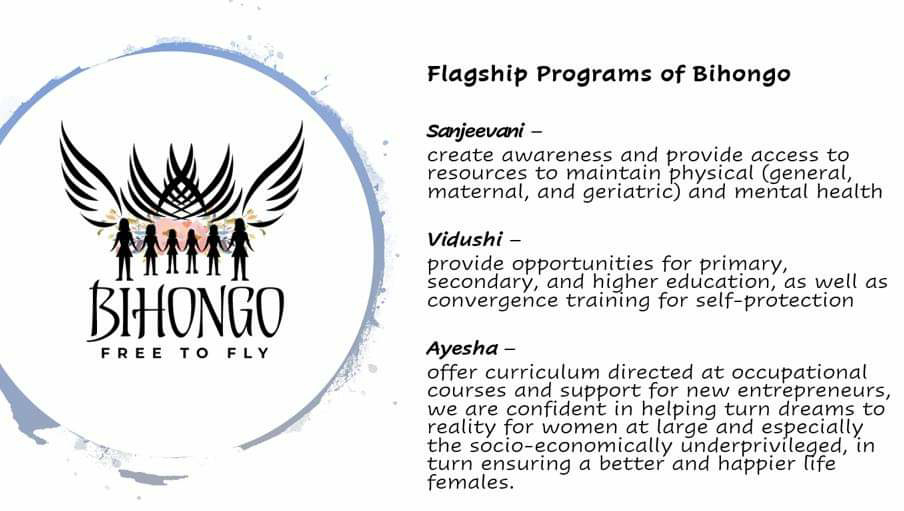WOMAN- The Societal Influencer
The first wave of feminism started off with women seeking voting rights in the western world, a right that should have been given to them when their male counterparts became eligible to vote. It went into the second wave with Betty Friedan’s The Feminine Mystique, which sparked the fire in women, and provoked them to not just stop at equal voting rights, but also ask for equal opportunities. The third wave of feminism was initiated in the early 1990s and sought to redefine the concepts of gender, sexuality, and femininity. Can you, as a modern woman, existing in the era of a fourth wave feminist movement, imagine living in a society where you were not even allowed to have housing rights without the approval/consent of your spouse? Weird, right? Well, women were not even allowed to have housing rights on their own until 1970 – and we are talking about the so-called most advanced nation in the world, the United States of America.
In 1993, India passed a constitutional amendment calling for one third of Sarpanch (village council leader) positions to be reserved for women. The goal was to ultimately extrapolate this to state-level legislatives and national-level upper (Rajya Sabha) and lower (Lok Sabha) houses of Parliament. Indeed, the 108th Amendment Bill of the Indian Constitution, famously termed as the Women’s Reservation Bill was introduced in 2008 to amend the Indian constitution to mandatorily include one third of all seats in state legislative assemblies and Lok Sabha for women. The Rajya Sabha passed the bill on March 9, 2010 and the news was celebrated across India; however, it never saw day light in Lok Sabha and thus NEVER became a law. The importance of having a political voice for women cannot be overstated given that the politicians are the ones who are the policy makers that govern both male and female. It is not a surprise that the Indian society is afraid to give the deserved political rights to women, making Britain’s Dama Helena Kennedy’s observation on International Women’s Day that “You don’t have to believe in patriarchy to realize that the law was made by men and is dominated by men, and that the same goes for parliament. Which means that in all the making of the law, women are largely absent. It is not surprising that the law doesn’t work for women” so perfect globally. It is unsurprising that out of 150 elected heads of state and 192 heads of government, only 20 are women. The situation is worser when it comes to state or local governments across all nations.
Feminism is an ongoing fight, because even though the supposedly modern woman has access to opportunities that her mother or grandmother did not and are better off socio-economically equal rights for women and men is still an unmet requirement across all demographics in the entire world. It is important to understand and reiterate that feminism is not a man-hating movement, which is how it is often portrayed in the mainstream media. Feminism is about fighting for equality, respect, and recognition for women in the same footing as it is offered to men. And feminism is about fighting for the aforementioned rights in every aspect of life – be it in the labour market, sports, social or family life. For instance, in cricket why men can be umpires for a women’s cricket match and not vice versa? Men will tell you that there are not enough women umpires – but that is not the truth. Then again in tennis, why are the Grand Slam tournaments are 3 setters for women while being 5 setters for men – the later will tell it is because of difference in body strengths – that might be correct, but why the trophies look different? Such gender biases and inept rationalization by men are pervasive across all walks of life and need to be changed – that’s where feminism comes in. As Vinatoli Yeptho puts it, in her poem ‘Five Rules For Whomever It May Concern’, about the struggles of being a woman in India, “And if you still do not obey these rules, remember, my forefathers were head-hunters. I was born out of a clan of warriors….Remember the world’s hottest chilli is growing in my grandmother’s garden.”
Right from childhood, a girl child is raised to believe that she needs a man to complete her. This thought is so outrageous! Girl children are most often raised to believe that their end goal is to get married, have kids, and be the society-approved life-long servant for the husband. Unfortunately, mothers before marriage and mothers-in-law after marriage express the same expectations of their daughters/daughters-in-law, despite themselves being women and victims of the same gender inequalities their entire life. This just goes on to show how deeply ingrained the prejudice against women’s rights are in our society, so much so that they are almost always unfortunately considered as laws of nature.
Countless studies have shown that because women are the more repressed part of the society, they are more prone and vulnerable during individual illnesses or natural disasters. It is extremely vital to make sure they are protected from these risks, and to further educate them, and provide them with resources because that is the only way we can enable them to build resilience in the community, face vulnerable situations head-on, and build social security. We need to draw inspiration from women like Savitribai Phule and Tarabai Shinde, who had the guts to call out the patriarchal society and dedicate their lives to empowering women even in pre-independent India.
As Brigham Young puts it, “If you educate a man, you educate a man. You educate a woman, you educate a generation”. Educated women is central to a stronger family, a stronger economy, and a stronger society. The fact that women are required to seek and fight for basic rights is unfortunate and demonstrates the selfishness and lack of respect for women among men. It is imperative for the world to understand that we do more harm than good, not just for women but for the society as a whole, when women are denied access to education, healthcare, respect, and recognition. An educated woman can contribute to regulating the problem of population explosion, especially in under-developed and developing nation. Her children will also be healthier because she possesses the knowledge and resources which enables her to make better informed decisions about their health, basic hygiene, and upbringing. Hence, it is a cascade effect that will percolate across all layers of the society making the world a better place to live in for both women and men.
Women are catalysts for growth of an economy, and for improving livelihoods. There are examples of countless women who have fought through the patriarchy and made a positive impact on society – these are the women from whom we should draw inspiration as we fight for our rights. One such inspiration is Ms. Kiran Mazumdar-Shaw, chairperson and managing director of Biocon Limited. She is a billionaire entrepreneur, former chairperson of Indian Institute of Management, Bangalore, and most importantly a role model for countless young Indian girls. Just consider this – according to McKinsey & Company report, titled “The Power of Parity: How Advancing Women’s Equality Can Add $12 Trillion to Global Growth,” – by 2025, the world economy will grow by $28 trillion if women are allowed to participate in the labour force to the same extent as men. This will translate to a 26% increase in economic development, almost equivalent to the combined gross domestic products (GDPs) of China and the United States of America. So, among the insanity of suppressing women whole economies are losing out. It is therefore so important to better enable men and women to work at the same level to ensure that their communities and families can flourish. An educated and informed woman can make better decisions about managing money, and even building micro-enterprises, which will not only improve her own economic condition, but also create employment opportunities, which will build an environment where various people and livelihoods can flourish.
Women have proved their worth in all walks of life. Why are then women still denied opportunities? Well, it all stems from a concept called ‘toxic masculinity’. Patriarchy puts men at as much of an advantage as it puts women at a defined disadvantage. Toxic masculinity refers to a series of norms that dictate how a man is expected to be. They are expected to have women under their feet, they are expected to be dominant and have the upper hand in every situation. And when they do not follow these norms, they are called weak by fellow men. Women empowerment puts these “norms” at a disadvantage, which brings out the insecurity and fear of women rising in stature above them. It is not about women or men ruling each other – it is about equal rights and opportunities for women and men. And its time for women to get their rights! As Arundhati Roy, the author of God of Small Things says “Either way change will come. It could be bloody, or it could be beautiful. It depends on us”.



Comments
Post a Comment